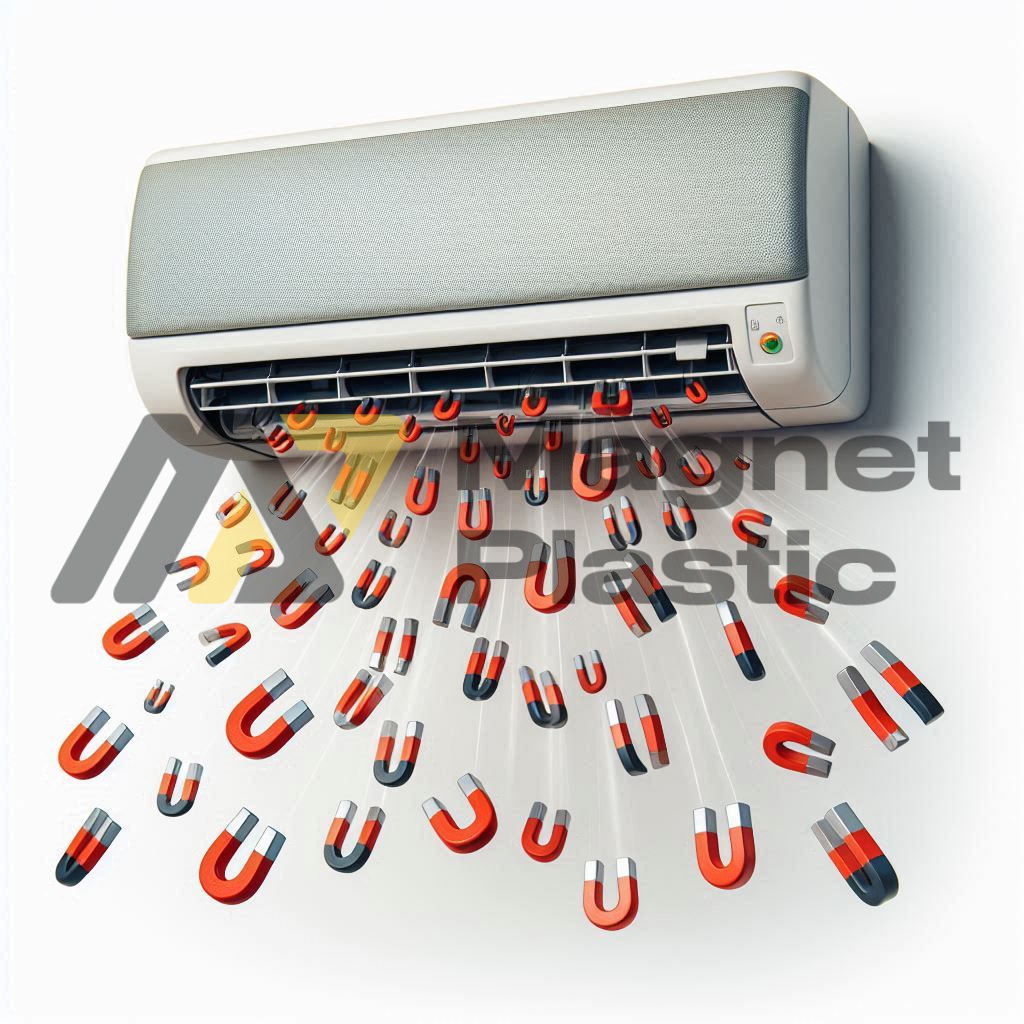Magnets in Air Conditioning Systems
The utilization of magnets in air conditioning (AC) systems is transforming the industry, significantly improving the efficiency, durability, and performance of these systems. With the increasing demand for more efficient and sustainable cooling solutions, the incorporation of magnets in key components of air conditioning systems has become essential.
Compressors and the Role of Magnets
Compressors are fundamental components in air conditioning systems as they increase the pressure of the refrigerant to facilitate its circulation. Traditional compressors use electric motors with permanent or electromagnetic magnets. Rare earth magnets, such as those made of neodymium, are particularly valued for their high magnetic flux density and energy efficiency. These magnets allow compressors to operate at higher speeds with lower energy consumption, resulting in greater efficiency and reduced operating costs.
Permanent Magnet Motors
Permanent magnet motors (PMMs) are becoming standard in modern air conditioning systems due to their ability to enhance energy efficiency and reduce the size and weight of components. These motors replace copper coils with permanent magnets to generate the necessary magnetic field. The absence of coils reduces energy losses due to resistance and decreases heat generation, thereby improving the overall efficiency of the system.
High-Efficiency Fans
Fans, essential for moving cold or hot air through ducts and into rooms, also benefit from magnet technology. Fans with permanent magnet motors operate more efficiently than traditional motors. By improving the efficiency of fans, air conditioning systems can reduce energy consumption and increase user comfort.
Temperature Control and Regulation
Precision in temperature control and regulation is crucial in modern air conditioning systems. Magnetic sensors, used to monitor the position of expansion valves and other critical components, allow precise control of the temperature and pressure of the refrigerant. This precision enhances the system’s efficiency and performance, extends the lifespan of components, and reduces the need for maintenance and costly repairs.
Noise and Vibration Reduction
The incorporation of magnets in motors and compressors also helps reduce noise and vibration in air conditioning systems. Motors and compressors with permanent magnets tend to operate more quietly and smoothly compared to traditional motors, due to the reduction of moving parts and the elimination of vibrations associated with the use of electromagnetic coils. Quieter operation not only improves the user experience but also reduces wear on components, increasing the system’s durability.
Sustainability and the Future of Air Conditioning Systems
The use of magnets in air conditioning systems has significant implications for sustainability. Increased energy efficiency and reduced material consumption contribute to a lower carbon footprint and a smaller environmental impact. As technology advances, the adoption of air conditioning systems that leverage the benefits of permanent magnets is likely to increase, promoting a more sustainable and efficient future.
Conclusion
The integration of magnets in air conditioning systems represents a key innovation that enhances the energy efficiency, durability, and performance of these systems. From compressors and motors to fans and sensors, magnets are revolutionizing the air conditioning industry, providing more sustainable and effective solutions to meet the growing demands for comfort and energy efficiency worldwide.
